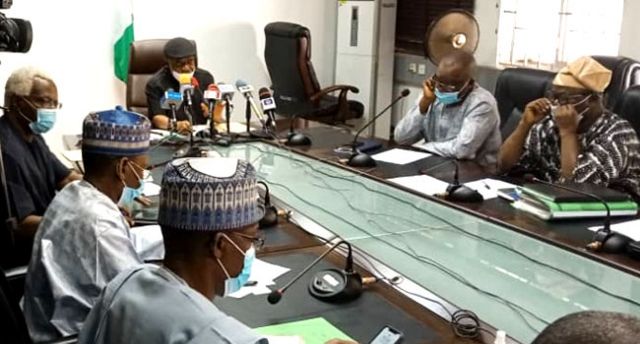Education
FG Hints at Alternative Funding For Tertiary Education to Address Academic Challenges

The Federal Government has mulled the need to explore alternative means of funding for tertiary education in Nigeria amid academic disruption caused by the Academic Staff Union of Universities (ASUU).
Investors King reported that academic activities in public universities in Nigeria were disrupted for about eight months.
Speaking at a public event organised by the House of Representatives, the Minister for Works and Former Governor of Lagos State, Babatunde Fashola noted that alternative funding seems to be the only forward-looking way to fund tertiary education in Nigeria.
While acknowledging that tertiary education needs collective funding from all levels of government, he however highlights areas where the universities and polytechnics could generate funds to include printing press and consultancy services.
“University consultancy services, data provision, poll results, value data, and printing press are value proposals of alternatives for tertiary Institutions,” he said.
Fashola also disapproved of the autonomy sought by lecturers in tertiary education. He noted that it is a big issue that needs to be addressed going forward.
Also speaking at the event is the Director General of the budget office of the federation, Benjamin Akabueze.
Akabueze who aligned himself with the position of the minister noted that the current system of funding can not feed the tertiary education sector.
‘There has to be sustainable funding of tertiary education. We can’t continue with the current system because it is not working and not sustainable.” he stated.
Nonetheless, the event also witnessed opposing opinions, particularly from Professor Uduak Ekpo. A professor of education at the University of Calabar.
Ekpo disagrees with the earlier position established by both Fashola and Akabueze. He noted that if lecturers are saddled with the responsibility of funding, it will affect the quality of education and research.
He concluded that the funding might still not be successful noting that lectures are better off in the classrooms or labs.
On his part, the President of the Academic Staff Union of Universities, Professor Emmanuel Osodeke bemoaned any idea to increase the fee paid by students in search of alternative funding. He noted that with the level of poverty and the state of the economy, many students will not be able to afford any increase.